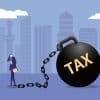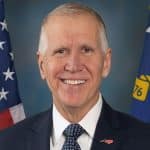As the drumbeat of the U.S. presidential election grows louder, so does the clamor around its alleged impact on the housing market—a narrative that is as pervasive as it is misleading. Political operatives and pundits alike weave tales of doom and market paralysis with every election cycle, but a closer examination of the facts reveals a different story: elections have far less impact on the housing market than the political class would have us believe.
Exposing the Election Influence Fallacy
Every four years, as presidential candidates tout their economic agendas, a cloud of uncertainty is said to hang over the housing market, causing potential buyers and sellers to supposedly retreat into the shadows, waiting for the electoral storm to pass. However, this notion is not grounded in reality. Decades of housing data and economic analysis show that presidential elections do not wield the power over real estate that political narratives claim.
For instance, a detailed review of home price trends from the S&P CoreLogic Case-Shiller Home Price Index demonstrates that housing markets have historically performed robustly in election years. Prices have, on average, appreciated more during these supposedly unstable periods than in non-election years. This clearly contradicts the myth that elections freeze market activities and depress values.
Real Drivers of the Housing Market
The truth is that the factors influencing the housing market are largely economic and not political. Supply and demand dynamics, interest rates, and broader economic health play significantly more decisive roles in shaping the market than the transient drama of presidential politics. It is here, in the mundane but critical realm of economic fundamentals, where our attention should be focused, not on the sensationalized narratives of election impact.
Economists like Lisa Sturtevant and Ken H. Johnson consistently emphasize that the housing market’s health is tied to factors such as employment rates, consumer confidence, and mortgage availability. These elements are only marginally influenced by who occupies the White House or what policies they may promote.
The Limited Reach of Presidential Power
Moreover, the belief in presidential omnipotence in economic matters is a gross exaggeration. Despite campaign promises that hinge on housing reforms and economic boosts, the reality of presidential influence is much more constrained. For example, despite Joe Biden’s campaign pledge of a first-time homebuyer tax credit, such initiatives are slow to materialize and often get mired in the broader governmental processes, illustrating the limits of executive power on economic sectors as vast as real estate.
A Call to Dismiss Political Rhetoric
It is time to dispel the myths. The real estate market should no longer be a political football, subject to scare tactics and alarmist predictions that coincide with every election cycle. Voters and market participants alike should recognize these claims for what they are: distractions from the substantive economic debates that should be at the forefront of our national discourse.
Prioritize Economic Strategy Over Election Spectacle
As another election approaches, let us challenge the narratives that distract from genuine economic discussion and policy-making. The housing market, a critical component of the national economy, deserves more than to be reduced to a tool in political machinations. It’s high time that our political and economic discussions reflect the real issues at hand, focusing on creating and sustaining a robust housing market driven by sound economic principles, not by the specter of electoral outcomes.
John G. Stevens is the publisher of Weekly Real Estate News.



















Interest rates have an enormous impact on the ability to purchase a home and they are indeed affected by the person in the White House.
Sounds a bit like quoting the former President’ rhetoric but the mentioning Biden’s promise to help first time home buyers and put that idea down. Let’s even up the score or don’t bring candidates into your reporting by name, and showing your bias.
Government can’t do a whole lot to help markets, but government meddling through unneeded regulation or “incentives” that distort markets for ideological or political purposes, can do a lot of damage. Except for the occassional update or needed alterations due to advances in technology, we crossed the line of needed regulation a long time ago; pretty much any new regulation or program will almost certainly do a lot of damage for little good. Vote accordingly.
I echo David’s comments and Al also makes a correct point. I majored in macro economics and follow all markets very closely. I have been a Realtor for 28 years.
Back in 2009 I was asked by my local association president to attend a meeting to lobby Eric Cantor to push for the $8000 first time home buyer credit. I became persona non grata when I said that it was a very bad idea to offer that credit as it would simply pull demand forward and create an expectation for future buyers and sellers. Governmental leaders love putting consumers and voters in dependent situations.
In fact housing sales declined significantly once the tax credit program ended just as I had stated in that meeting. I told Eric that if he and congress were hellbent on doing this that they needed to stair-step it downward from $8000 to $4000 to $2000 so that when the program ended it was not as big of a deal going from $2000 to $0 vs from $8000 to 0.
Of course I was hushed by those in the meeting because everyone there had an agenda and were only looking at the short term effects. I was looking at the industry over the long term.
Sometimes the best and honest thing to do as a politician or business leader is to do nothing……. and take the heat in the short term. Bottom line is that there are many rules and regs that make sense politically and from a policy perspective but fail in the real world because of the irrefutable law of Unintended Consequences.
Rick,
You are so right. Thank you for speaking truth to power.
A couple of factors in housing: Higher building material costs. Solid employment in many areas. People that will stay in a home because of a really low interest rate on their mortgage. Older people staying in their home due to high apartment rents. Investment groups snapping up single family homes. We should have a government program to ramp up affordable home building. That was done after WW 2 because of the housing shortage. Good luck America.